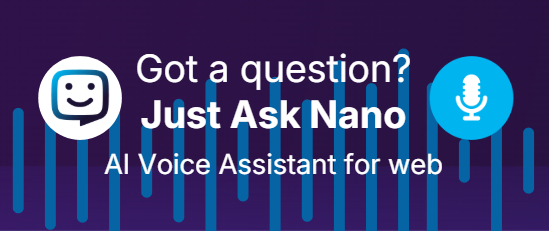
In the ever-evolving world of artificial intelligence, one term has gained rapid traction: Agentic AI. While many technology vendors and analysts use this term broadly, it's crucial for business leaders to understand what truly constitutes agentic AI, as defined by decades of research in the field.
If you're running a business or providing software solutions, understanding genuine agentic AI and its potential value is essential. While analysts from Gartner, McKinsey, Forrester, and others have highlighted AI agents as a key trend for 2025, let's explore what actually qualifies as agentic AI and how it could shape your business future.
What is Agentic AI?
At its core, Agentic AI refers to AI systems that are designed to take independent actions usually related to specific tasks, much like a human employee who understands their objectives and doesn't wait for instructions, but proactively gets things done. These autonomous systems don’t require inputs or prompts; they think, decide, and act on their own, continually increasing their knowledge with every interaction. Agentic AI is able to understand context, and has been described as being 'goal orientated' which enables independent decision making.
Agentic AI is not to be confused with Autonomous AI and Guided AI. Autonomous AI Agents can also operate independently, so have some 'agentic' capabilities but are not strictly classed as Agentic. They perform tasks without direct human intervention, and most AI Agents use Machine Learning and algorithms to analyse data, draw insights and execute tasks within a predefined workflow or following a set of instructions; for example an employee co-pilot which provides hints and tips prompted by a users behaviour. Guided or scripted AI Agents (imagine an intelligent chatbot) can also be great for predictable tasks, they provide the most control over a conversation flow or customer journey; providing answers to common queries or sign-posting to information based on the content that it is trained from, however a Guided AI Agent is not usually designed to handle dynamic, complex scenarios where greater autonomy might be required.
Why is Agentic AI Advantageous for UK Businesses?
The world of business is moving faster than ever, and decision-making often needs to happen in real time. Here’s why Agentic AI can be a game-changer for your business:
- Aiding Speedier Decisions: According to Gartner, by 2028, 15% of daily work decisions will be made by Agentic AI, a massive leap from today and the potential for agentic AI aid human decision making is huge.
- Scalability: As McKinsey points out, Agentic AI is set to become as ubiquitous as chatbots are today. The difference? These AI agents can handle intricate tasks at scale, freeing up your team for more strategic work.
- Staying Competitive: Forrester predicts AI Agents will top the list of emerging tech trends in 2025. Businesses that adopt them early will have a clear edge, especially in industries like retail, finance, professional services and logistics.
- Optimising Efficiency: Capgemini reports that 82% of companies plan to adopt AI agents within the next 1-3 years, with most organisations seeking time saving solutions.
When to use Agentic AI?
Not every business task requires a super-intelligent, autonomous AI agent. It's important to identify how much autonomy or 'agency' you want your AI Agent to have, if there are multiple tasks or even undefined steps which call for more advanced AI or Agentic Agents or when Guided or Scripted AI Agents will do the trick.
Appropriate Use Cases for Agentic AI
The best use cases for Agentic AI are those where a goal or target outcome can be set, but the specifics to get there are broadly unknown which means that the AI Agent needs to given enough bandwidth, scope or 'agency' to create it's own critical chain of sub-commands without the need for human intervention.
- Supporting Sales & Marketing: An AI Agent can enhance the customer journey by providing tailored product recommendations and guidance, supporting customers during a research phase by helping them to choose the right solution for their needs or identifying the right product - from planning a holiday itinerary through to identifying the right software plan - and even helping customers to onboard the software and providing ongoing support for users.
- Customer Support: Agentic Agents don't just answer questions but are able to triage multiple cases, identify issues and either resolve them proactively or route them to the appropriate team, improving customer satisfaction and reducing the need for human escalation.
- Onboarding employees: Agentic AI can be a specialist in HR helping new recruits to access tools or resources, setting up accounts and providing personalised onboarding programmes.
- Complaints & Claims Management: For claims processing, an Agentic Agent triages incoming complaints and claims, automatically resolving straightforward cases (like standard refunds under a particular value), gathering required documentation for complex cases, and routing high-risk claims (like potential fraud) to specialised handlers, all while maintaining compliance standards.
When Traditional Guided AI Solutions are Best
Handling predictable, rule-based tasks like FAQs, or process flows for appointment bookings, or simple transactions. In these cases, where a customer interaction follows a pre-determined path or process a scripted chatbot or rule-based AI Agent will likely handle the process quicker and be more cost-effective.
- Handing customer FAQs, for general enquiries on your website or for specific activities like form filling or applications.
- Helping to manage processes, including screening employment applications (in place of form filling, looking up availability for events or activities and even booking appointments or handling simple transactions.
- Capturing information in line with regulation, for example for legal or financial applications or processes where a set-process needs to be followed and there is little ambiguity.
Choosing the Right AI Solution
The good news? You don’t have to choose in advance between AI Agents, Agentic and Guided AI. The best AI platforms, offer all capabilities.
Here are the top 5 things to look for when looking for an AI platform:
1. Flexibility: Ensure the platform can, or will be able to offer both autonomous (AI and Agentic Agents) and Guided (Scripted) Agents depending on the task and your business environment.
2. Advanced Reasoning & Understanding: Robust natural language processing (NLP) capabilities are essential, the platform must accurately interpret what's being asked in order to deliver the right response or action.
3. Intelligence: For advanced use cases your Agent will need to exhibit enhanced autonomy, decision-making capabilities, and adaptability, allowing you to pursue complex goals and execute workflows independently.
4. Interoperability: Choose a solution that grows with your business, whether it's ingesting documents or web pages, integrating to your business applications and databases, or connecting to your teams and departments.
5. Easy to Manage: Understanding the skills you have internally to manage the platform and choosing one that offers no-code configuration for much of the day-to-day changes and Low-code for more complex changes will ensure that you aren't outsourcing anything and will help to keep costs under control.
Conclusion
While many solutions are being described as agentic AI, understanding the true definition helps businesses make better technology decisions. True AI agents offer unique capabilities for handling complex, dynamic business challenges, but they aren't necessary for every automation need. Success lies in matching the right type of AI solution to your specific business requirements and it's highly likely that you'll adopt several different types of AI Agent throughout your business, each to perform a different set of tasks - from standalone 'bots' or as part of a network of AI powered Agents that help your team to be more efficient and to provide the ultimate in customer convenience.
As the field evolves, we're likely to see increasing applications of genuine agentic AI in business contexts. Organisations that understand both the possibilities and limitations of these systems will be best positioned to leverage them effectively.
Remember that implementing agentic AI isn't about replacing existing systems wholesale, but about identifying specific areas where an agent's ability to sense, act, and adapt over time can create sustained business value. With this clearer understanding of what constitutes true agentic AI, you can make more informed decisions about where and how to implement these systems in your organisation.
To discuss the best approach for your business please get in touch or give our team a call on 0333 6000 360







